Rita, Sue and Bob Too: A snapshot of 1980s Britain
- Published
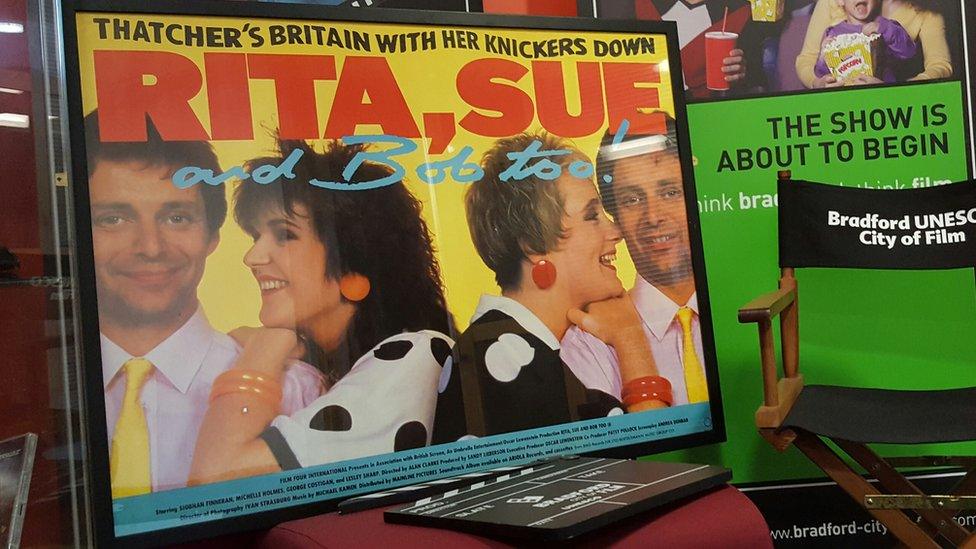
Rita, Sue and Bob Too depicted life on a Bradford estate in a darkly comic tale
Billed as "Thatcher's Britain with her knickers down", British film comedy Rita, Sue and Bob Too was an unexpected hit when it was released 30 years ago. This darkly comic tale of two sexually confident working-class Bradford teenagers might have charmed the critics - but many closer to home failed to see the joke.
Originally written for the stage in 1982 by Andrea Dunbar, the story depicted life on the deprived Buttershaw estate where she grew up - and did not flinch from its portrayal of alcoholism, violence, poverty and a feckless benefit culture.
The film featured teenage babysitters Rita (Siobhan Finneran) and Sue (Michelle Holmes), who both partially escaped from their lives on the estate by having an affair with married man Bob (George Costigan) who lived in a detached house in a smarter part of the city.
It was an incendiary mixture.
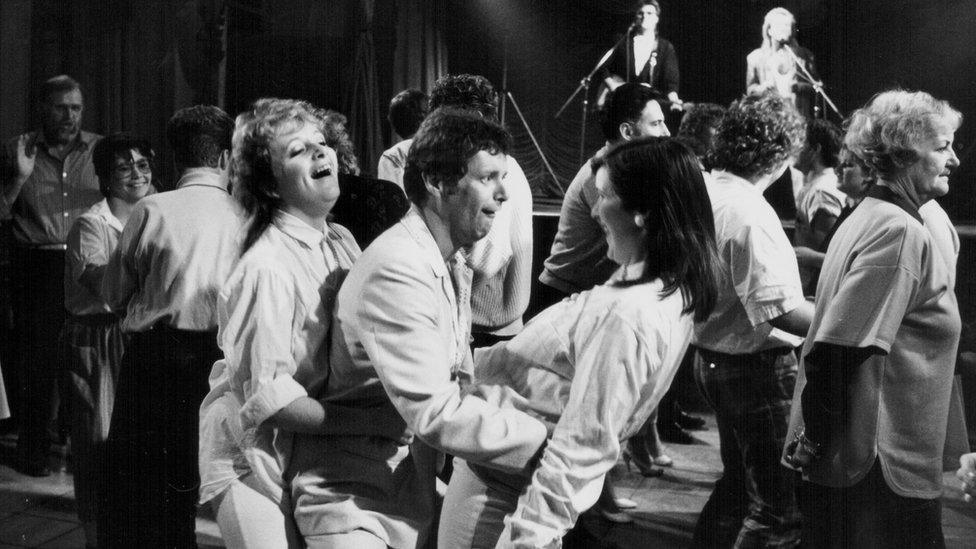
The film was thought to reinforce negative stereotypes by some viewers
Tony Earnshaw, author of Made in Yorkshire, a study of filmmaking in the county, was one of the many who reacted badly to the Alan Clarke-directed film when he first saw it as a teenager.
The city was attempting to repair a poor public image - and the film was seen by many as reinforcing negative stereotypes.
"I didn't like it at the time, I wasn't mature enough to appreciate it," the author said. "I am a working-class lad and I was angry about how it misrepresented Yorkshire. I thought its makers were laughing at us."
Such apparent sensitivity needs to be set against the backdrop of the time.
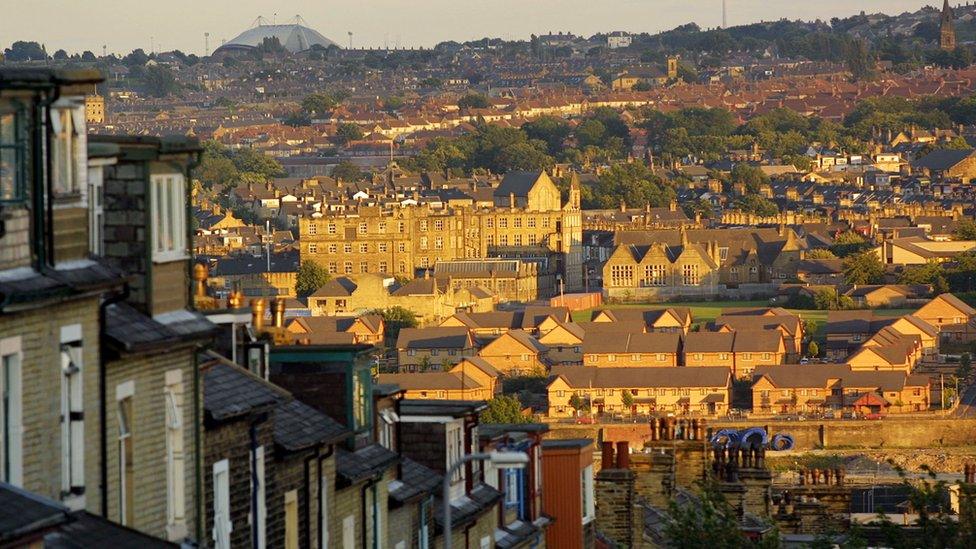
The city of Bradford had taken a battering before the film was released
Bradford's image had taken a battering in the 1980s: it had lost traditional industries and jobs, there were fierce arguments about race and education, and the city suffered one of the worst British stadium tragedies when 56 football fans perished in the 1985 Valley Parade fire.
And then, of course, there was Bradford's most notorious son, Peter Sutcliffe, the Yorkshire Ripper, whose murderous campaign was finally halted by his chance arrest in 1981.
The city had tried to lift collective spirits with Bradford's Bouncing Back, a feel-good marketing campaign launched in 1986, featuring a special poster by Bradford Grammar School alumnus David Hockney.
Into this mix came the 1987 film, described by that doyen of film critics Roger Ebert , externalas "a bleak, sardonic comedy about the violation of a taboo".
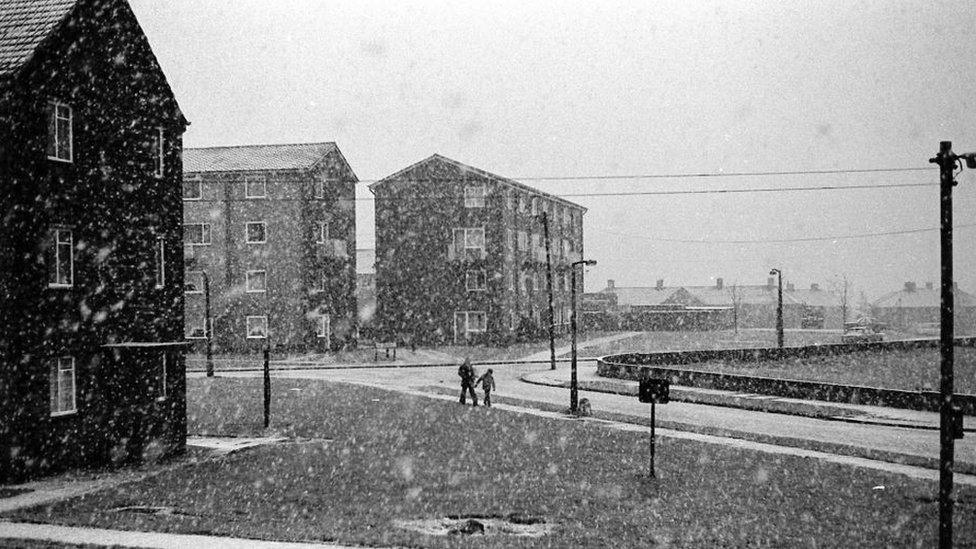
The play and film made Dunbar and the estate the focus of often unwelcome publicity
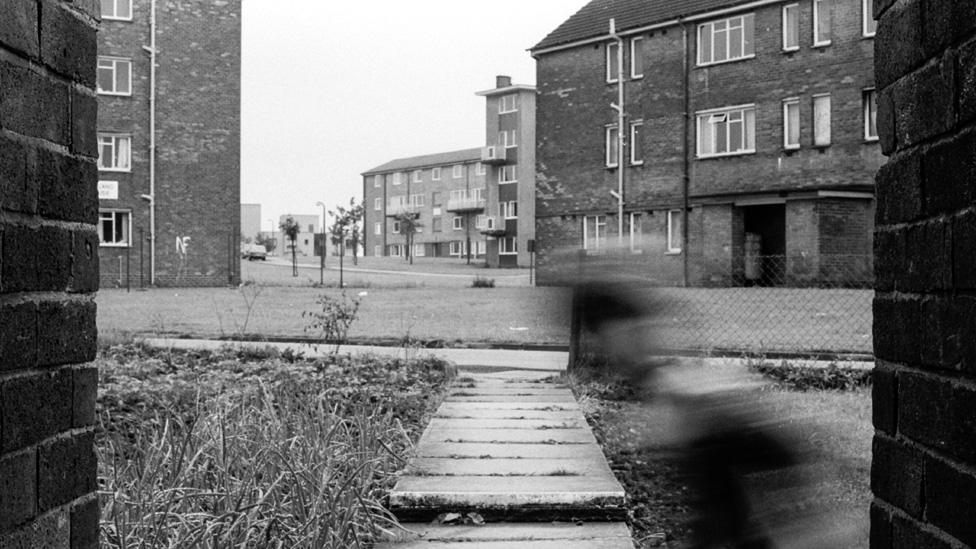
Michelle Holmes (Sue) said the film was 'a snapshot of an age'
Adelle Stripe, who has written a novel based on Dunbar's short life - the playwright died of a brain haemorrhage at the age of 29 in 1990 - said the film "really poured oil on the fire".
"She [Dunbar] wrote her first play when she was 15 years old, she'd never been to the theatre, and this is what is remarkable about her: she dramatised what was happening in her life at the time, and was encouraged by her teachers at Buttershaw Upper School."
Dunbar was asked by the BBC in 1987 whether the play was based on personal experiences.
"Parts of it was, parts wasn't - but you see things happening on an estate anyway," she said.
"But if you grow up on an estate, live there, you know everybody and I don't find it shocking to write about it."
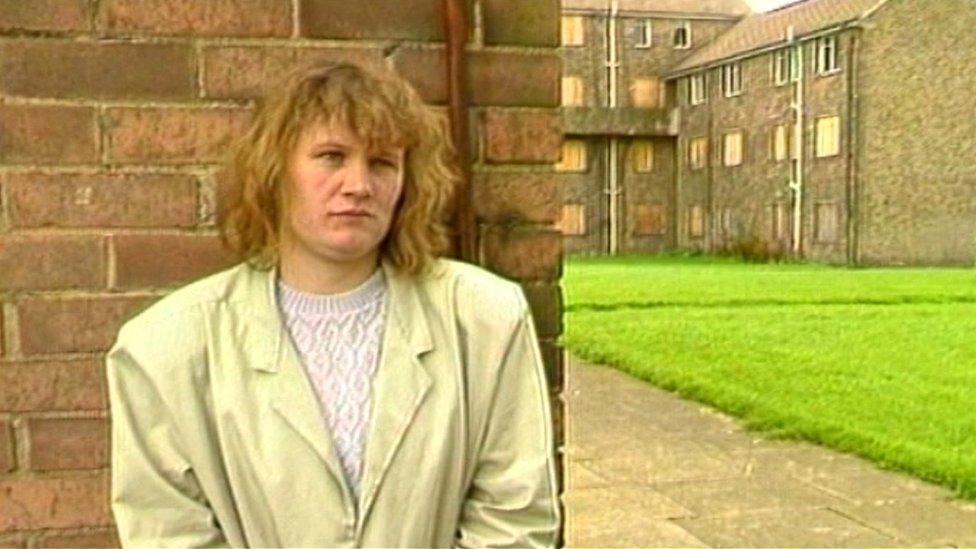
Andrea Dunbar was interviewed by the BBC in 1987 about the film
The play and film made Dunbar and the estate the focus of often unwelcome publicity, Ms Stripe says.
"She got a lot of negative press. Press cuttings of the time always mention she was an unmarried mother with three children. Not a big deal for us in 2017 but she took a lot of flak for it then.
"She liked having a drink... because you're working class and live on a council estate it therefore becomes a stick to beat her with. It was double standards, really."
David Wilson, who is the director of Bradford's City of Film programme, points out Bradford has undergone huge changes since the 1980s.
"Buttershaw is a different place now, some of the buildings and the low-rise flats on the estate have gone," he said.
"We have moved on and often changed beyond all recognition.
"But you can look back with a nostalgic view on the film, which was a social commentary that did not skirt some difficult issues."
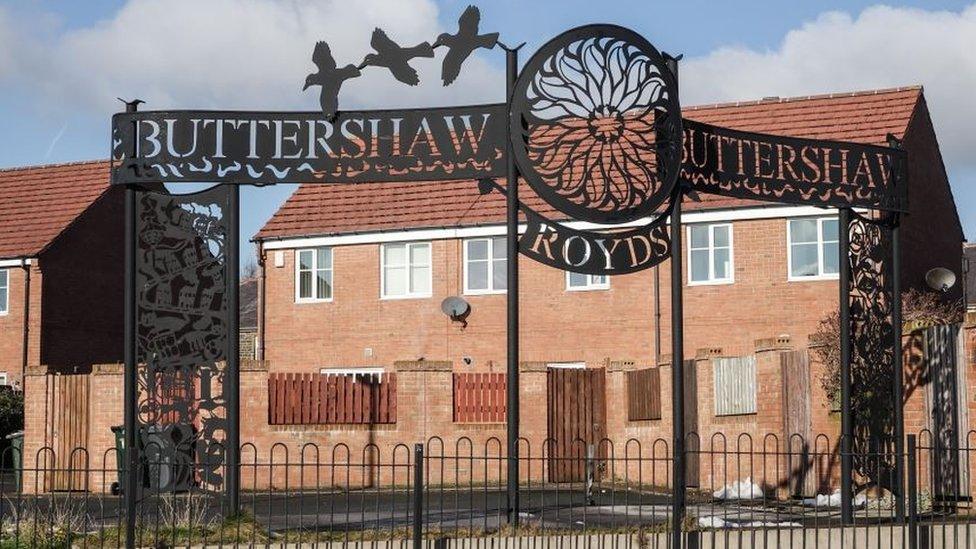
The Buttershaw estate has been regenerated in recent years
Mr Wilson believes Rita, Sue and Bob Too has many parallels with another film, the 1959 northern kitchen-sink drama Room at the Top, external. There were calls for that movie to be banned and it was given an X-rated certificate. Now it is widely praised as a classic British film, he said.
He has recently rewatched Rita, Sue and Bob Too and was struck by the nostalgic fashions, furniture and architecture.
Most importantly for him "it inspired another generation of filmmakers and, creatively, it has not hindered Bradford at all".
This is a view that would most likely be shared by many Bradfordians, even those who were uneasy about the film on its release.
Tony Earnshaw, certainly, says he feels very differently about Rita, Sue and Bob Too than he did as a teenager.
"I've come to realise it is a very accurate portrait of life," he said.
"There's a joie de vivre; the characters are not trying to escape from their lives, they are happy and don't aspire to anything more.
"It's a celebration of a certain strata of society. It occupies its own space in time."
Michelle Holmes, who played Sue, recalls the making of the film fondly.
"We had a brilliant, brilliant time, seven weeks of absolute fun," she said.
"It is crazy: who would have thought every single day somebody says something to me about the film? That's what I find incredible about it.
"Now it is a snapshot of an age and it seems to have more resonance."